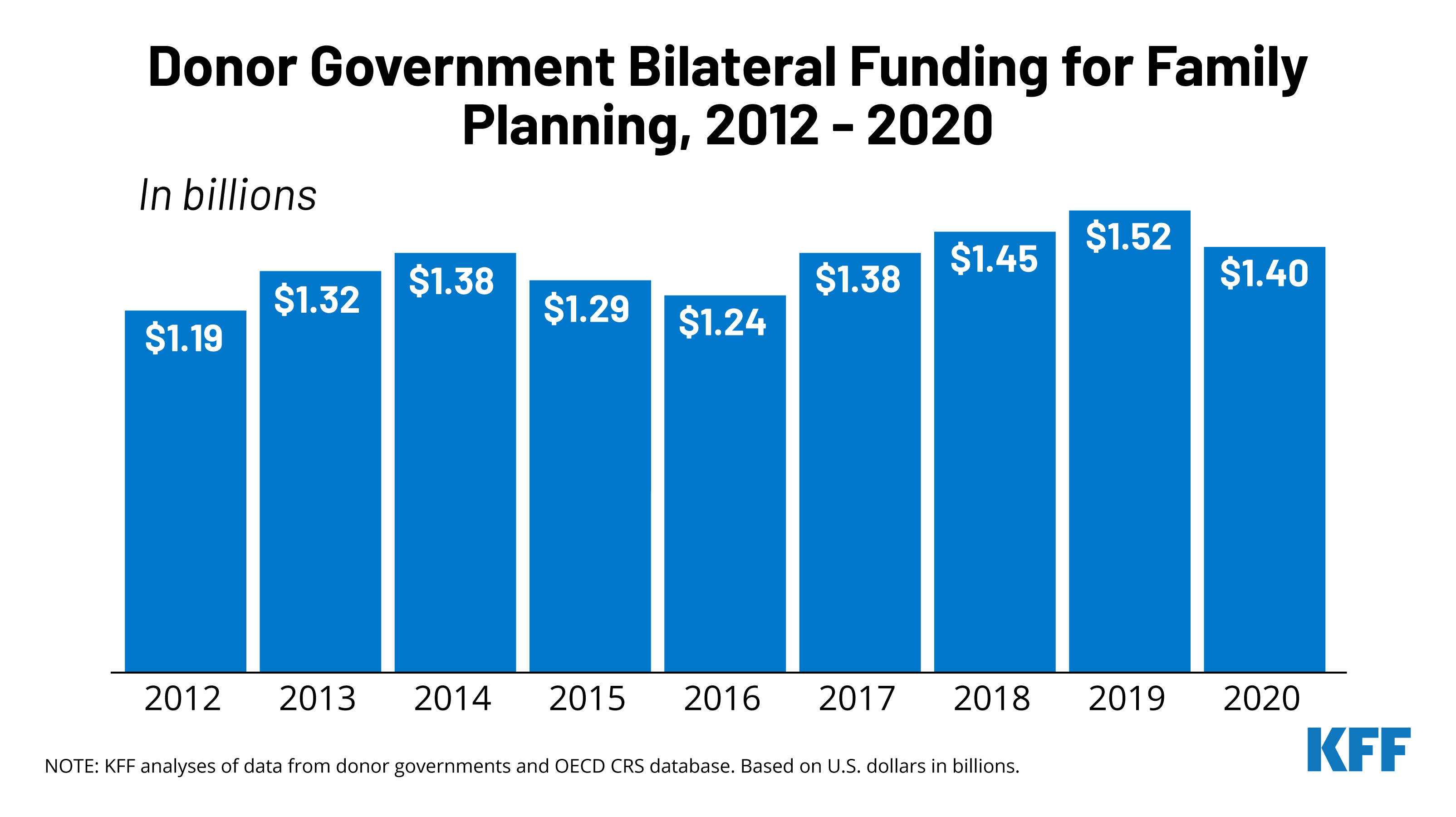A new KFF analysis finds donor government support for global family planning efforts totaled US$1.40 billion in 2020, a decline of US$114 million compared to last year’s level of US$1.52 billion. This decline in donor funding was largely due to the decreased funding from the UK, family planning’s second largest donor after the US.

The UK decline was partly due to the timing of disbursements, but also to the effect of the COVID-19 pandemic on its overall economy since, by law, the UK overseas aid budget is a percentage of gross national income, which declined in 2020. In addition to the UK, three other countries (Demark, Germany, and Norway) also decreased their 2020 funding for family planning.
Three government donors increased their funding in 2020 (Canada, France, and Sweden), while an additional three remained flat (Australia, Netherlands, and the US). Though the US did not increase its funding in 2020, it remains the largest donor to bilateral family planning funding, providing 41% of the total bilateral funding.
The new report also finds donor governments increased their contributions to UNFPA in 2020, rising by more than US$40 million compared to 2019, despite the lack of funding from the US in 2020 due to the Trump Administration’s invoking of the Kemp-Kasten amendment to withhold all support from UNFPA.
Funding remains uncertain amidst the COVID-19 pandemic, but the Biden Administration and current Congress have expressed support for increased family planning funding for 2021.
Results of this analysis are also included in the annual progress report from FP2030, Measurement Report 2021. FP2030 is the successor to FP2020, a global initiative that ran from 2012 to 2020.
Contact
- Emma Anderson
- emmaa@kff.org